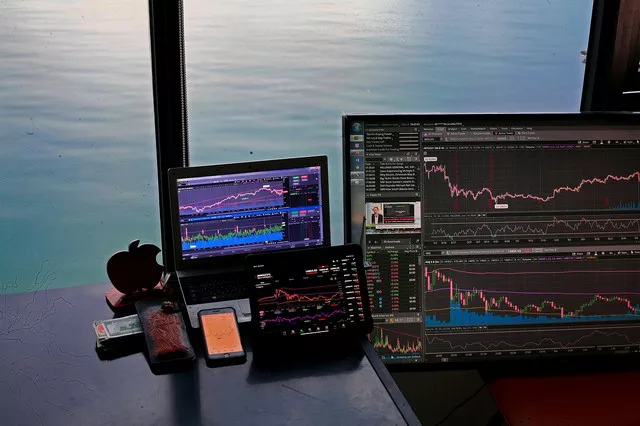Gas futures trading is a complex yet lucrative endeavor that plays a pivotal role in energy markets worldwide. As the demand for natural gas continues to rise, fueled by industrialization, urbanization, and environmental concerns, investors seek opportunities to capitalize on price movements through futures contracts. In this article, we delve into the fundamentals of gas futures trading, exploring the mechanics, risks, and potential rewards for investors.
What are Gas Futures?
Gas futures are financial contracts that obligate the buyer to purchase or the seller to sell a specified quantity of natural gas at a predetermined price on a future date. These contracts are traded on regulated exchanges such as the New York Mercantile Exchange (NYMEX) and the Intercontinental Exchange (ICE), providing a platform for market participants to hedge against price fluctuations or speculate on future gas prices.
Mechanics of Gas Futures Trading
Gas futures contracts typically represent a standardized quantity of natural gas, measured in British Thermal Units (BTUs) or cubic feet, and have specific expiration dates. Trading occurs through electronic platforms, where buyers and sellers submit orders to execute trades. Prices are determined by supply and demand dynamics, geopolitical factors, weather patterns, and macroeconomic indicators, making gas futures trading highly volatile.
Who Can Trade Gas Futures?
Gas futures trading is open to a wide range of participants, including institutional investors, hedge funds, energy companies, speculators, and retail traders. While institutional investors often dominate the market due to their financial resources and expertise, retail traders can access gas futures through brokerage platforms that offer futures trading services. However, trading futures requires a deep understanding of market dynamics, risk management strategies, and regulatory compliance.
Benefits of Gas Futures Trading
See Also: How do gas futures work?
Gas futures trading offers several benefits for investors, including:
Price Discovery: Futures markets provide valuable insights into future gas prices, enabling producers, consumers, and investors to make informed decisions.
Risk Management: Hedging with gas futures allows market participants to mitigate price risk associated with fluctuations in gas prices, protecting against adverse movements.
Liquidity: Gas futures markets are highly liquid, with ample trading volume and tight bid-ask spreads, facilitating efficient price discovery and execution.
Diversification: Gas futures can diversify investment portfolios, reducing overall risk by providing exposure to a different asset class with low correlation to traditional investments.
Speculative Opportunities: Traders can capitalize on short-term price movements in gas futures, potentially generating significant profits through strategic trading strategies.
Risks of Gas Futures Trading
Despite the potential rewards, gas futures trading carries inherent risks that investors should consider, including:
Price Volatility: Gas prices can be highly volatile, driven by factors such as geopolitical tensions, supply disruptions, weather events, and economic data releases.
Leverage: Futures trading involves leverage, amplifying both gains and losses, which can lead to substantial financial risk if not managed properly.
Counterparty Risk: Trading on margin exposes investors to counterparty risk, where the failure of a brokerage or clearinghouse could result in financial losses.
Regulatory Risks: Gas futures trading is subject to regulatory oversight, with changes in regulations or government policies impacting market dynamics and participant behavior.
Market Risk: External factors such as changes in energy demand, technological advancements, and geopolitical developments can affect gas prices and futures market performance.
Strategies for Gas Futures Trading
Successful gas futures trading requires a comprehensive understanding of market dynamics and effective risk management strategies. Some common trading strategies include:
Trend Following: Traders identify trends in gas prices and enter positions in the direction of the trend, aiming to capture profits as prices continue to move.
Spread Trading: Trading the price differentials between related gas futures contracts, such as different delivery months or geographic regions, to capitalize on arbitrage opportunities.
Options Trading: Utilizing options contracts to hedge against downside risk or speculate on future price movements, providing flexibility and limited risk exposure.
Seasonal Patterns: Exploiting seasonal trends in gas demand and supply, such as increased consumption during winter months for heating purposes, to anticipate price movements.
Technical Analysis: Analyzing price charts, volume data, and technical indicators to identify patterns and signals for entry and exit points in gas futures trading.
Conclusion
Gas futures trading offers a unique opportunity for investors to participate in the dynamic energy markets, with the potential for substantial profits and risk. By understanding the mechanics, risks, and strategies involved, investors can navigate the complexities of gas futures trading and make informed decisions to achieve their financial objectives. However, it is essential to exercise caution, conduct thorough research, and implement robust risk management practices to succeed in this competitive and volatile market.


